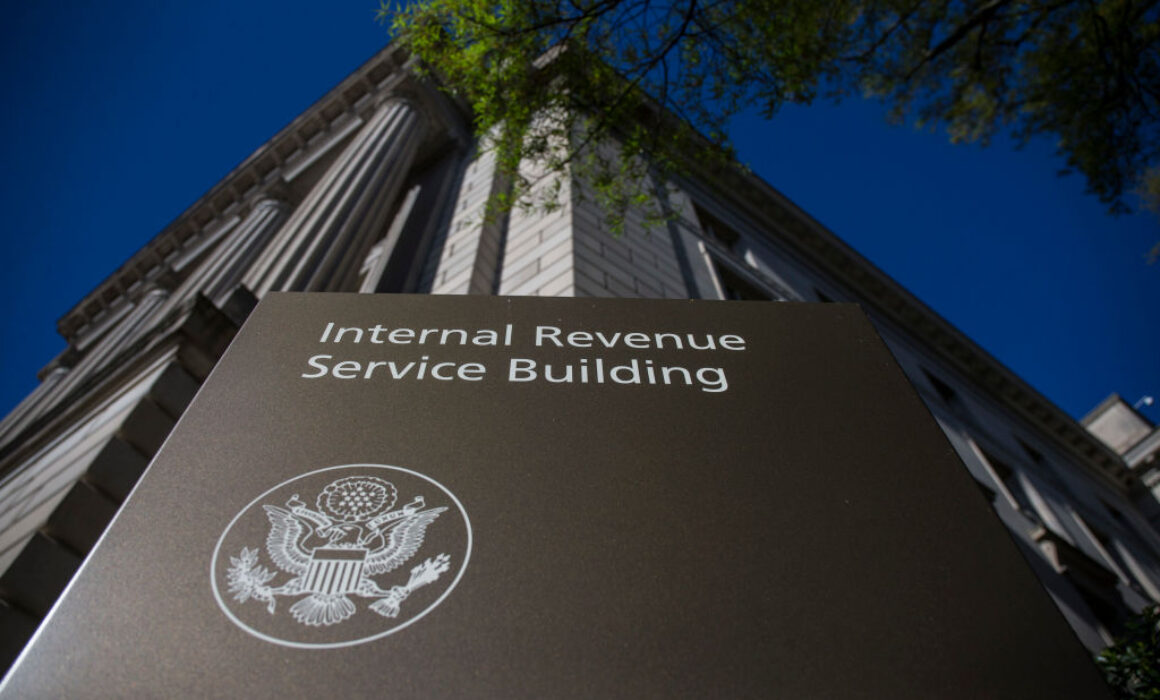Making Tax Season Less Taxing
February 9, 2024
For a fair tax system, government should relieve the burden of navigating it.
The Roosevelt Rundown features our top stories of the week.
The IRS is launching a new tool to allow taxpayers to directly file their taxes through the agency. (Photo by Zach Gibson/Getty Images)
The TCJA Complicated Our Already Complicated Tax Code
It’s no secret that the US tax code—which already advantages corporations over low- and middle-income families—is difficult for most people to make sense of. In a new blog post, Roosevelt’s Emily DiVito illustrates how the most recent major tax reform, the 2017 Tax Cuts and Jobs Act (TCJA), didn’t just slash taxes for corporations and the wealthy—it further burdened low- and middle-income families with its complicated structure.
The TCJA put expiration dates on politically popular provisions like the Child Tax Credit, teeing up potentially destabilizing changes for families years later and entrenching a tax code that saddles individuals with the responsibility to track how much they might owe each year.
“[T]his dynamic—that the tax code can change in material ways without the public’s keen awareness—disadvantages most individual taxpayers who can’t afford to spend precious time, energy, or money tracking changes to the tax code,” DiVito writes, “and it advantages the corporations and wealthiest households who can.”
But the Internal Revenue Service has taken a step in the right direction: The pilot of its new Direct File tool—launched last week and enabled by the Inflation Reduction Act—will allow thousands of eligible Americans to file their tax returns for free directly through the IRS, simplifying the process and eliminating the need for costly third-party tax preparation companies.
“[Direct File] starts to move us away from a tax policymaking paradigm that overburdens low- and middle-income families and toward one where the federal government utilizes its full capabilities to undertake that effort for you,” DiVito writes. Read more in “The TCJA Is Making Our Tax System—and Tax Season—More Burdensome.”
What We’re Talking About
Whenever a tax/inequality expert gets invited to an anti-trust conference, my ears perk up.@gabriel_zucman explains how the tax code drives market power by opening distinct comp advantages to large multinationals, like Google.
Time to tax monopolies.https://t.co/C2JSK0D51J
— Niko Lusiani (@NikoLusiani) February 6, 2024
What We’re Reading
[Roosevelt’s] Mike Konczal and Matthew Dickerson on the US Economy and Government Spending Deadlines
– C-SPAN
Messy Conversations, with [Roosevelt’s] Rhiana Gunn-Wright [podcast] – Drilled
Winning Progressive Change with Deepak Bhargava [podcast] – Why Is This Happening? The Chris Hayes Podcast
EPA Tightens Rules on Some Air Pollution for the First Time in over a Decade – NPR
Confronted with Child Labor in the US, Companies Move to Crack Down – New York Times
